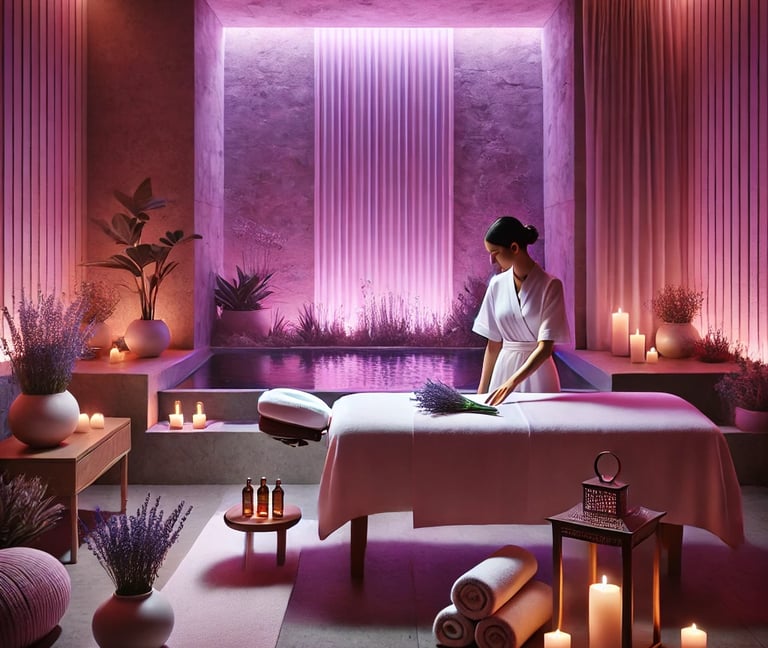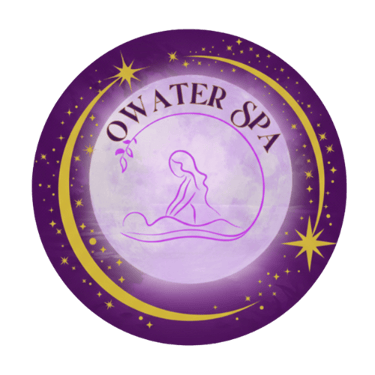Self-Care Tips from the Experts
Using Massage to Alleviate Anxiety and Boost Wellness
D Owater
3/18/20254 min read


Self-Care Tips from the Experts: Using Massage to Alleviate Anxiety and Boost Wellness
In today's fast-paced world, anxiety and stress can often feel like unwelcome companions, but massage therapy offers a serene escape with profound health benefits. As a time-honored practice with a rich history spanning over 5,000 years, massage therapy is not only a luxurious indulgence but a powerful tool for alleviating anxiety and enhancing overall wellness. From Swedish and deep tissue to the soothing embrace of a hot stone massage, each technique provides unique pathways to relaxation and rejuvenation. Expert insights reveal that regular massages can significantly lower cortisol levels, the hormone responsible for stress, while boosting serotonin and dopamine, the body’s natural mood enhancers. Whether you're looking to improve posture, enhance sleep quality, or simply melt away tension, these self-care tips from the experts will guide you on a journey towards tranquility and renewal. For more information, check this resource.
Unlocking Massage Therapy Benefits
Massage therapy is a holistic practice rooted in ancient traditions that have evolved into modern techniques promoting physical and mental well-being. Understanding the various types of massage and their health benefits helps maximize its potential for stress relief and overall health improvement. This section explores the origin, methods, and advantages of massage therapy.
Ancient Traditions, Modern Healing
Massage therapy has a storied history, with roots dating back over 5,000 years. Ancient civilizations like the Egyptians, Chinese, and Greeks utilized massage as a healing art, recognizing its potential to restore balance and harmony to both body and mind.
In contemporary healthcare, massage therapy is recognized for its therapeutic benefits. It's commonly integrated into wellness programs to alleviate stress and enhance physical recovery. The fusion of ancient wisdom with modern techniques offers individuals a comprehensive approach to health.
Modern science supports these time-honored practices, revealing how massage can reduce pain, improve circulation, and promote relaxation. Emphasizing these aspects can encourage a broader acceptance of massage as a valid therapeutic option.
Types of Massage Techniques
The world of massage therapy encompasses a broad range of techniques, each offering unique benefits. From the gentle strokes of Swedish massage to the targeted pressure of deep tissue, understanding these methods can guide individuals in choosing the right massage for their needs.
Swedish Massage: Known for its gentle, flowing strokes, it promotes relaxation.
Deep Tissue Massage: Targets deeper muscle layers, beneficial for chronic pain.
Hot Stone Massage: Uses heated stones to ease muscle tension and improve circulation.
Each technique serves different purposes, enabling therapists to tailor their approach to individual client needs, promoting relaxation and healing in various ways.
Health Benefits of Massage
The health benefits of massage are extensive, providing both physical and mental relief. Regular sessions can significantly reduce muscle tension, improve circulation, and enhance flexibility, contributing to overall physical health.
Massage therapy also offers mental health benefits. Studies show it can lower cortisol levels, reduce anxiety, and improve mood by boosting serotonin and dopamine production. These effects make massage a powerful tool for managing stress and enhancing mental well-being.
Incorporating massage into one's routine can lead to improved sleep quality and increased energy levels, making it a valuable component of a holistic health plan.
Stress Relief Techniques for Wellness
Managing stress is crucial for maintaining health, and various techniques can help achieve this. Incorporating massage into your wellness routine is an effective way to alleviate tension and promote relaxation. This section discusses using massage for relaxation, the benefits of aromatherapy massage, and how massage can enhance mood and reduce anxiety.
Using Massage for Relaxation
Massage for relaxation offers a sanctuary from the stresses of daily life. By engaging the parasympathetic nervous system, massage helps calm the mind and body, promoting a sense of peace and tranquility.
Deep breathing techniques during a massage can amplify its calming effects. Simple practices like inhaling for four seconds, holding for four, and exhaling for six can deepen relaxation.
For more insights on relaxation techniques and stress management, visit Mayo Clinic and HelpGuide.
Aromatherapy Massage for Enhanced Calm
Aromatherapy massage combines the power of essential oils with traditional massage techniques to enhance relaxation and emotional balance. Popular oils like lavender, eucalyptus, and peppermint are known for their calming properties.
These oils are believed to interact with the limbic system, influencing emotions and promoting a sense of calm. The combination of touch and scent creates a holistic experience that soothes both body and mind.
For more on the benefits of aromatherapy massage, explore Nativa Spa.
Massage for Anxiety and Mood Boost
Incorporating massage therapy into a routine can significantly reduce anxiety and enhance mood. The stimulation of endorphins during a session leads to a natural mood boost, offering relief from stress and tension.
Regular massage can also help manage symptoms of depression by promoting relaxation and improving sleep quality. The physical touch involved in massage has been shown to lower anxiety levels, providing a sense of emotional balance.
For a deeper understanding of these benefits, check out AMTA.
Self-Care and Holistic Wellness
Self-care is essential for maintaining a balanced and healthy life. Massage therapy plays a vital role in this by supporting posture, improving sleep, and offering simple DIY techniques for everyday relaxation. This section explores these aspects of holistic wellness, providing practical insights for integrating massage into your self-care routine.
Massage for Posture Improvement
Improving posture through massage involves targeting specific muscle groups to alleviate tension and correct imbalances. Regular sessions help relax tight muscles, allowing the body to realign naturally.
Massage can be particularly beneficial for those spending long hours at a desk. It aids in reducing strain on the back, neck, and shoulders, promoting a more upright posture.
Incorporating stretching exercises alongside massage can further enhance posture benefits, leading to a more confident and comfortable stance.
Massage and Sleep Quality
Massage therapy has proven effects on sleep quality, making it an excellent addition to a bedtime routine. By calming the nervous system, massage helps reduce insomnia and enhances the overall quality of sleep.
The relaxation induced by massage promotes a deeper, more restful sleep, allowing the body to recover and recharge. This effect is particularly beneficial for individuals with high-stress levels or irregular sleep patterns.
Integrating massage into your nightly routine can lead to significant improvements in sleep, contributing to better overall health and well-being.
DIY Self-Massage Tips
For those unable to schedule regular professional sessions, DIY self-massage offers a convenient alternative to relieve muscle tension and stress. Simple techniques, like gently kneading your shoulders or using a foam roller, can be effective.
Shoulder Kneading: Use fingers to apply gentle pressure.
Foot Massage: Roll a tennis ball under your feet to relieve tension.
Foam Rolling: Target larger muscle groups like thighs and back.
